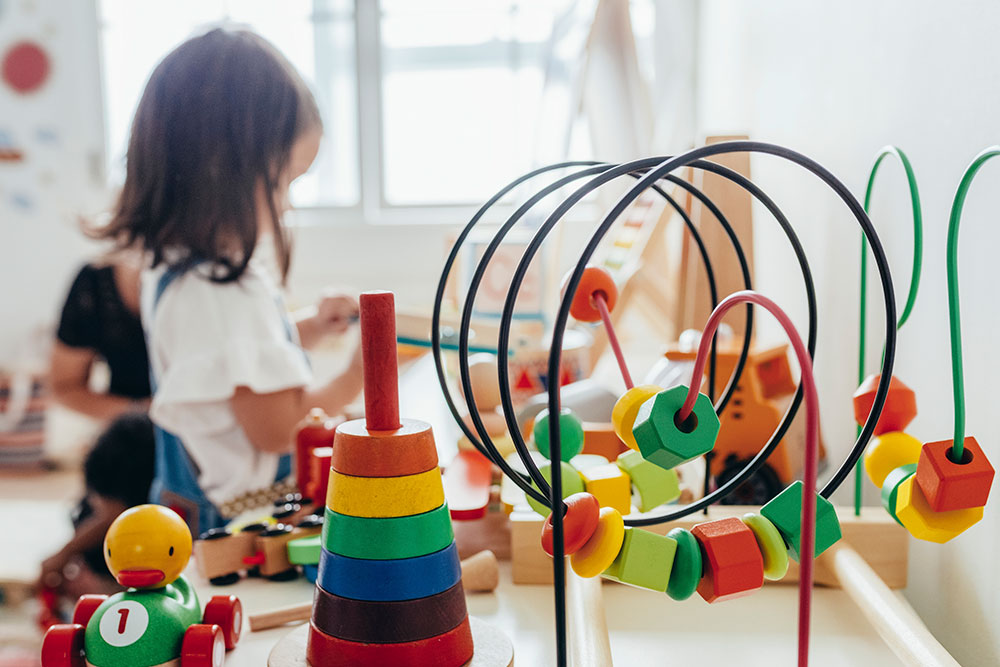Is My Child’s Therapy Just Play Time?
Published on May 11th, 2021
Updated on January 3rd, 2024

You decided it was time for your child to go to therapy. Maybe they are struggling emotionally, academically, or they are show challenging behaviors at home. You complete all the paperwork and meet with the therapist to do the diagnostic interview. You are ready for therapy to solve all the problems.
But then…your child tells you about their play therapy sessions… and they just… played!
Is therapy really just about them going to an office to play with the therapist? I get this one a lot from parents. Yes. Your child is playing in their therapy. But… No. They are not JUST playing in therapy. Many things are happening during this play therapy session, and it is much more than just playing a game.
Sponsored by

Choose a therapist to work with and start healing with 20% off from BetterHelp.
Click HereDeveloping a Relationship
The first thing that is happening in play therapy is the development of the therapeutic relationship. Just like adults, kids take some time to trust the therapist. It takes time to develop safety in the relationship for the child to be able to reveal what is troubling them. While adults can often do this quickly and by talking, children can take a bit longer to trust, and talking is SOOO boring for kids.
Talking does not build trust…it bores kids… and does not meet them on their level.
Evaluation
Another one of the first things happening early in child therapy is the therapists’ evaluation of their issues/needs. The therapist evaluates what behaviors are coming up in the office and what areas seem to be causing issues.
You might be saying… but I already told the therapist what the issues were! Yes, and they were absolutely listening, and, now, they are evaluating on a different level. The therapist needs both to make the best diagnosis and treatment plan.
When two different parents coming into the office and both say “my child doesn’t listen,” it often means very different things. One child may be struggling with overwhelming anxiety and having a hard time focusing due to high stress and overwhelming feelings of worry, while another child may be struggling with attention-deficit/hyperactivity disorder (ADHD). Both are struggling to follow directions and listen…but for different reasons. They also need a different therapeutic approach and different approaches at home.
The evaluation of these behaviors happens in the play; when the child is not trying to ‘show’ the therapist that they CAN listen.
Teaching Skills
The next thing that may happen in your child’s therapy that the therapist is teaching skills. The skills may be to help with emotional regulation, anger issues, sibling conflict, difficulty following, calming strategies, or another skill your child may need.
And yes… you guessed it… this one is going to happen in play too! Have you ever tried to sit your child down at the table and have a long conversation? How did that go? His or her eyes probably started to glaze over after a few minutes, right? That’s because kids have not developed the ability to process conversations in the same way as adults.
Kids need stimulation and they need excitement. They need to be engaged to learn new things and want to try the new skills. I have had many kids come back and remind me of an activity we did several sessions before, which gives us a chance to revisit the skills. I have had very few kids remember the boring conversation on the couch!
Play Therapy as the Therapy
A child navigates their world through their play. You may notice that the toys they play with and how they play changes over time and when things happen in their lives. For example, a child who has recently had their tonsils removed may start playing hospital and doctor play. This is their way of navigating and making sense of the world.
Child therapists typically have training in play therapy (hopefully), and many are registered play therapists. They have training in helping kids to process their issues using the symbolism of the play. So while it seems like the child is just having an expensive play date, they are working through the issues with a trained and objective person.
If you do have concerns about the work your child is doing (or not doing) in therapy, talk with their therapist. They will be able to tell you what the play therapy modality is, and you should work together to develop the treatment plan for your child.
I have often told parents that asking kids to talk about their issues is like asking adults to speak Spanish during their therapy sessions. Unless that parent and therapist know Spanish, that is not going to be a very beneficial therapy session. Expecting kids to talk about their issues rather than play them out is not usually helpful either.
Some kids do like to talk with the therapist, which is perfectly fine! But most, process more in therapy through their play.
Sponsored by

Find an affordable therapist online with 20% off from BetterHelp.
Click Here






Leave A Reply